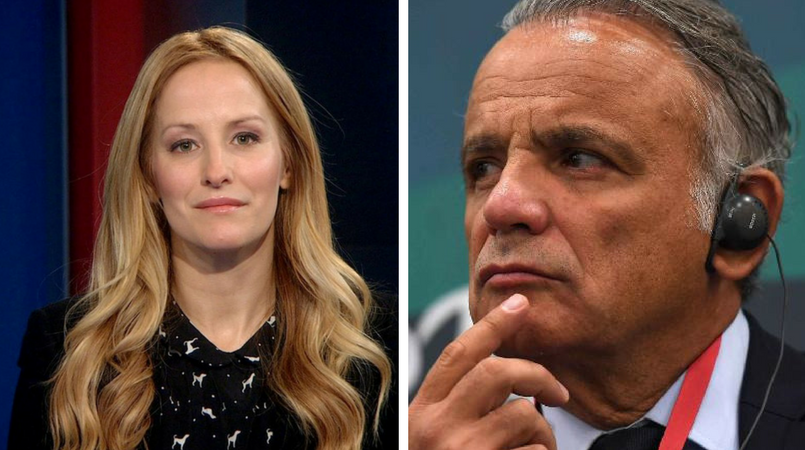
A United Nations employee who says she was sexually assaulted by a top UN official has spoken publicly for the first time.
She alleged she was offered a promotion if she accepted an apology from the man and claimed that the organisation failed to take her complaint seriously.
In an exclusive interview with CNN, Martina Brostrom accused a UN assistant secretary general, Dr. Luiz Loures, of grabbing her in a hotel elevator, forcibly kissing her and trying to drag her to his room during a conference in 2015. He denies the allegations.
"I was pleading with him, and I was just bracing with all that I could just to not leave the elevator," Brostrom, a policy advisor at UNAIDS, the United Nations' global AIDS program, told CNN's Christiane Amanpour.
Loures told CNN he cooperated fully with a 14-month investigation, which concluded that her claims were unsubstantiated. But Brostrom criticised the investigation as "deeply flawed".
Loures, who was also the deputy executive director of UNAIDS, is leaving the UN at the end of his contract this week; the UN says it was his decision to leave. A spokesman for UNAIDS told CNN that the investigation into Brostrom's allegations followed "due process" and she is welcome to appeal.
Brostrom is one of three women to describe similar encounters with Loures. Another, Malayah Harper, told CNN that Loures assaulted her in a strikingly similar way at a hotel in 2014. A third told CNN of an assault a few years ago; she spoke on condition anonymity because of her current job.
Several people close to the head of UNAIDS, Michel Sidibé, say they warned him about Loures over a period of at least three years.
At a staff meeting at the end of February, audio of which has been obtained by CNN, Sidibé denied being warned. He also praised Loures' decision to leave the UN as "courageous" and attacked employees who spoke publicly about sexual harassment claims at the UN, saying "they don't have [a] moral approach".
The allegations point to a deep irony: While the UN's HIV/AIDS program has long promoted the empowerment of women as crucial to ending the epidemic, multiple activists and former UN employees tell CNN that the organisation has also long protected an executive dogged by claims of sexual harassment.
Those critics of the UN say it has failed to take allegations of sexual assault seriously, prioritising the reputation of the organisation over its obligations to protect employees.
The UN says it is redoubling its efforts to combat harassment, encourage reporting and protect accusers from retaliation.
Paula Donovan, whose campaign group Code Blue is pushing for changes in how the UN handles sexual harassment complaints, has spearheaded Brostrom's public appeal and raised concerns in open letters to the UN Secretary-General, Antonio Guterres.
Donovan said the UN should not be allowed to police itself. "I think the term that is not used often enough is the obvious conflict of interest. The UN simply cannot possibly play this role." Code Blue is calling for an "external, neutral, and independent body" to handle such allegations.
Stephen Lewis, a former senior official at UNICEF who now co-runs an NGO that works on AIDS policy with Donovan, says UN officials hold to a view that its reputation is sacrosanct. "There is an understanding that under no circumstances can you put the UN at risk," says Lewis, who has advocated on Brostrom's behalf.
